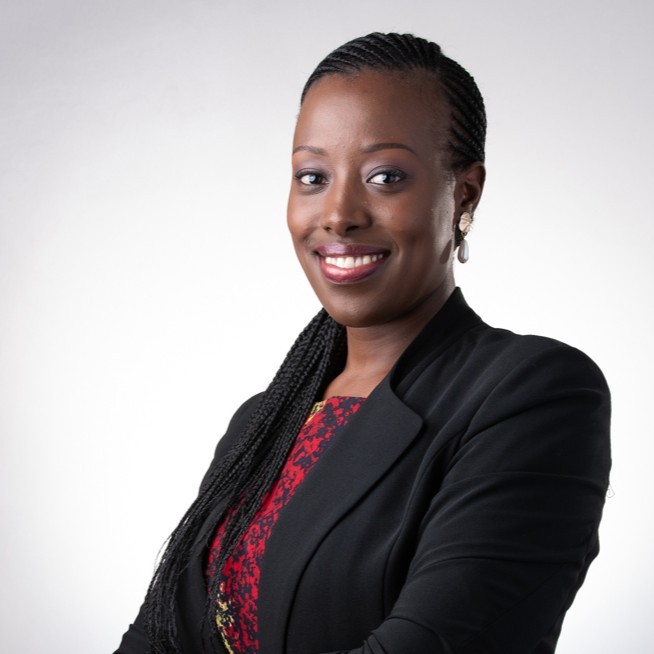
By Hortense Mudenge, Chief Strategy Officer of Rwanda Finance Limited
Last year, the World Economic Forum’s Global Gender Gap Index report ranked Rwanda as first in Africa and sixth in the world for gender parity. At 82%, Rwanda also has one of the highest female labour force participation rates globally, with women comprising 41% of professional and technical workers (World Bank, Gender Data Portal, 2022). Furthermore, Rwanda has the highest proportion of women in parliament globally, with women holding 61.3% of seats in the lower house of parliament as of 2022, and the most women in ministerial positions.
However, as yet in 2023, no country in the world has achieved full gender parity.
In July, Rwanda had the honour of hosting the Women Deliver Conference 2023 and welcoming 6000 delegates from all over the world, to advance the status of gender equality; to bridge the financing gap that women face; and discuss how to better educate and empower them. Recently, at the Angaza Forum 2023, Kigali International Financial Centre (KIFC) outlined its role in becoming a hub for inclusive and sustainable finance, bridging the gender gap and positioning women’s essential role to propel financial development.
Rwanda has indeed committed itself to gender parity, in particular across finance, politics, health and education and KIFC continues to strengthen its commitment to ensure that women are represented in all spheres of life both in business, entrepreneurial and financial entities.
Rwanda’s financial sector has traditionally been male-dominated but recent years have seen a shift, with more women taking on leadership roles. In the banking industry, six of the 15 CEOs or MDs are women, representing 40%, while 29% of the Non-Executive Directors are women, and 31% of the Executive Management are women. However, the financial sector still needs more women leaders in other industries, such as insurance and pension, licensed non-deposit-taking financial institutions and microfinance institutions.
Having women in senior positions is essential for the growth and development of Rwanda’s financial sector. Women leaders bring diversity and a fresh perspective, leading to innovation and new ideas. They are also excellent role models and can inspire other women to join the financial sector. And yet, women in Africa still face greater financial barriers compared to men. Research indicates that women receive a lower percentage of investments in contrast to men, with 70% of women financially excluded and an estimated financing gap of over $42 billion between men and women on the continent.
Africa also has the highest proportion of women entrepreneurs in the world, with the OECD reporting that more than a quarter of all businesses were either started or are managed by women. Despite these high levels of entrepreneurial activity, female investment in Africa is still lagging. In the last few years, fintech has been booming on the continent and both local and international investors are taking notice. And yet, from 2013 to 2021, less than 5% of the total $12.6 billion in funding to Africa’s tech startups went to all female founding teams compared with 82% to all male ones, data shared by Briter Bridges showed.
Unlocking the potential of female entrepreneurs would have tangible economic benefits. After all, one in four women on the continent starts her own business and moreover, women typically invest 90% of their income in their families and communities.
There are several reasons behind these significant imbalances such as structural barriers, discrimination by financial institutions, lack of support and low financial literacy. Another crucial factor hindering women-owned businesses’ access to finance in the region is informality, perceived higher risk and high collateral requirements and interest rates.
Arming women entrepreneurs with the appropriate financial knowledge and skills will boost their effective engagement in the credit market. Women entrepreneurs contribute $250 billion to the African economy and governments must support women-owned businesses by implementing the necessary services and programmes (Roland Berger, Women in Africa Entrepreneurship Study, 2021). That could mean cheaper loans for new businesses, for instance, or more business and finance advice and education for women entrepreneurs.
For us, at Kigali International Financial Centre (KIFC), closing the gender gap and promoting the up-skilling of finance professionals, especially women and young people, is a priority and we are working closely with partners in the private and educational sectors. For women specifically, there is the Women in Finance Rwanda Foundation offering training, mentoring, and networking events to help women succeed in their careers and navigate the ever-changing landscape of the finance industry.
As H.E. Jeannette Kagame, First Lady of the Republic of Rwanda said during the inaugural Inclusive Fintech Forum, hosted by KIFC and Elevandi, in June 2023 “Financial backing for women-led FinTech solutions must carry strong compelling incentives; not because women are in need of assistance, but because equality is their legitimate right…by limiting the space for women in Finance and Technology, we are not just failing women: we are failing everyone.”
Hortense MUDENGE is the Chief Strategy Officer of Rwanda Finance Limited, the company promoting and developing Rwanda as a leading financial destination for international investment and cross-border transactions in Africa. Hortense is a seasoned management consultant, with over 10 years of experience in advising international development and private-sector clients on business and market development. Prior to joining Rwanda Finance, Hortense worked with Dexis Consulting Group and the Global Alliance for Improved Nutrition, as a consultant, providing technical expertise in the delivery of donor-funded investment programs and grant facilities. Hortense holds an MBA from Hult International Business School in the US and is a graduate of the United States International University- Africa.
